Most of the advice you’re gonna hear about turkey hunting revolves around camouflage, calling techniques, and setting up at the right place. Indeed, one of the questions most frequently asked of new and old hunters alike: Can turkeys smell? Or, to be more specific, do turkeys have a sense of smell?
It’s a valid concern. After all, many of the game animals out there—deer, for example—have a great sense of smell and can pick up the thinnest odor and sniff you from the hundreds of yards. So, what about turkeys? Does turkey have a good sense of smell? So it’s time to start digging deep into turkey biology, myths, and some practical tips all the hunter needs to know.
Understanding a Turkey’s Sense of Smell
Common Myths and Misconceptions
For years now, there has been the assumption that turkeys can smell. Another common myth is that wild turkeys, like deer, can detect a hunter’s presence and escape an area completely. This has caused some hunters to rely on scent control products designed for deer hunting, although it is known that turkeys bust them because of human scent.
The truth? Turkeys do not depend on their sense of smell like other game animals do. Some hunters swear turkeys have some kind of scent-detecting power, and they usually can use scent, but much more than that, the turkeys use their other finely tuned senses—sight and hearing—to detect danger. These subtle environmental cues are often misattributed to smell as they do, and their reaction to them.
This difference can help hunters understand that movement control, camouflage, and calling techniques are what matter and not the supposed effects of this difference.
Over-worrying about scent can become an obstacle in paying attention to the real things that get turkeys’ attention.
Turkey’s Sensory Organs Overview
Turkeys have three main senses used to detect predators:
- Sight– Turkeys have phenomenal sight. Their estimated vision is 3 times better than a human’s. Unlike other animal eyes, they can see in full color and ultraviolet light; they can even detect the slightest movement from long distances. On the sides of the head, the eye is placed so its field of view is about 270 degrees without necessitating turning the head.
- Hearing– However, not only do they have the ability to hear, but they also have highly sensitive ears that aren’t visible to the naked eye. They can hear the lightest of sounds, including other turkeys’ lightest clucks, rustling leaves under their feet, or the snap of a twig. Due to this, they are particularly hard to sneak up on with their ability to point out sounds in their direction.
- Smell– This is where things start to get interesting. Turkeys have olfactory organs but are obviously far underdeveloped as compared to their sight and hearing. In a hunting context, their ability to smell is minimal to nonexistent as they are scientifically. Whereas deer and coyotes trail others by using their nose, the turkeys’ eyes and ears are much keener, and are used instead to stay alert and avoid becoming the frankfurter..
Do Turkeys Have a Good Sense of Smell?
Scientific Studies and Opinions
Wildlife biologists and ornithologists do not consider turkeys to have good olfactory development. In other words, they have small, seemingly simple nasal cavities and olfactory bulbs (the part of the brain that processes smells). Turkey’s sense of smell is limited at best or wholly absent. They have far less reliance on their eyes or their ears to find predators and to find their way around.
Dr. Richard Buchholz, a biologist at the University of Mississippi who has conducted extensive research on wild turkey behavior, notes that turkeys’ primary survival strategies revolve around their acute sight and hearing rather than their olfactory senses. Dr. Buchholz states, “There is no significant evidence to suggest wild turkeys rely on scent to detect danger or locate food. Their ability to smell is not a key factor in their behavior.”
This sentiment is supported by numerous studies that emphasize turkeys’ evolutionary focus on sight and sound as opposed to smell. Given their broad field of vision (around 270 degrees) and their ability to hear frequencies well beyond human capabilities, turkeys’ sensory systems are core attuned to what’s visually or audibly detectable, not olfactory cues.
In short, how well can turkeys smell? The answer is clear: not well at all. This should be reassuring to hunters, as turkeys’ scent detection capabilities are not something you need to worry about in most hunting situations.
Comparison to Other Game Animals
To put this into perspective, here’s how turkeys’ sense of smell stacks up against other popular game animals:
- Turkeys– Poor to negligible sense of smell; turkeys are much more likely to notice or hear you than smell you. They do have olfactory organs but are far less developed than the other game animals like deer or boar. Visual orientation and extreme sensitivity to movement in its environment mean that turkeys are highly visual and can pick up even the slightest shift. They are also very alert to sound, particularly to low frequency noises such as footsteps or your calling.
- White-tailed Deer– Exceptional sense of smell. Deer have a very sophisticated olfactory system within the animal kingdom. And under the right conditions, they can read human scent from more than 300 yards away and alert them to the presence of hunters ahead of time before they can see or hear them. Because deer depend upon their acute sense of smell, they are a tough game to pursue, and that’s why hunters must observe wind direction and carry out good scent control techniques.
- Elk– Their sense of smell is excellent, as elk are like deer. Because they are so sensitive to any disruptions to human odor, including during rut or in high predator areas, they can detect human odor from miles away. It’s this ability to smell that allows elk to avoid potential threats and enables them to find food sources and to detect even faint human scents, which is vital for survival.
- Wild Boar– Another creature with very strong olfactory abilities is the wild boar. They are so sensitive of smell that they can smell a predator, but also find food, including truffles underground. Their incredible sense of smell makes them formidable to hunt, particularly if you are tracking them in a dense forest or field environment.
Can Turkeys Smell Humans?
Now, to the main concern for hunters: Can turkeys smell you?
Technically, turkeys might be able to detect extremely strong odors if they are right next to them, but there is no practical evidence suggesting they can identify and react to human scent like deer can. Most encounters where a turkey seems to avoid a hunter are due to visual detection or hearing, not smell.
Factors That Influence Their “Smell”
While scent isn’t a critical threat trigger for turkeys, here are some situational factors that might influence their detection capability:
- Wind Direction– Unlike deer, wind direction matters little with turkeys. If they’re downwind of you, the risk of being detected through scent is still minimal.
- Distance– At close range (a few feet), a turkey might be able to detect strong odors like sweat or cologne, but they’re more likely to notice your movement or noise first.
- Environment– Dense vegetation and moist conditions can carry scent further, but again, turkeys aren’t wired to interpret it as a threat.
How Turkeys React to Human Scent?
In most cases, they won’t react at all. If they do flush or move away, it’s almost always because they saw or heard something, not because they picked up your scent. If a turkey appears spooked and runs off, review your movement or noise before assuming it was due to scent.
How to Minimize Scent During Hunting (Just in Case)
Even though turkeys don’t rely on scent detection, it never hurts to practice basic scent control—especially if you’re hunting in an area with other scent-sensitive animals or simply want to develop good overall habits.
Here are some practices for scent control in turkey hunting:
- Avoid Strong Odors
Skip the cologne, aftershave, and heavily scented deodorants on hunting days. Strong chemical smells are noticeable to all wildlife. - Wash Clothes in Unscented Detergent
Using scent-free laundry soap is a good cross-species practice and prevents any odors from alerting more scent-sensitive game. - Store Hunting Clothes Properly
Keep your gear in a sealed plastic tote or scent-free bag when not in use. - Use Natural Cover Scents
Though not necessary for turkey hunting, adding natural scents like pine or dirt can help you blend into the environment. - Stay Downwind as a Habit
Developing the habit of staying downwind will help if you’re also hunting animals with a good sense of smell. - Avoid Smoking or Eating in the Field
Food and tobacco smells can linger on your gear and may be noticeable at close range.
Conclusion
So, should you worry about your scent while turkey hunting? The bottom line is this: No, turkeys do not have a good sense of smell.
If you’ve been asking questions like: Can turkeys smell you or How well can turkeys smell, the answer is reassuring for hunters. Turkeys rely on their eyesight and hearing far more than any olfactory cues.
That doesn’t mean you should ignore basic scent hygiene in the woods, but it does mean that when hunting turkeys, you should focus on visual concealment, reducing noise, and mastering turkey calls rather than spending too much time on scent control products.
So the next time you’re gearing up for a hunt, you can confidently leave the scent-elimination sprays behind—just don’t forget your camo clothes and box call.
Learn More:
- What Time Do Turkeys Roost?
- The Best Time To Turkey Hunt
- Successful Evening Turkey Hunting Guide
- Do You Wear Orange Or Camo When Turkey Hunting?
- Spring Turkey Seasons Dates&Limits in The US


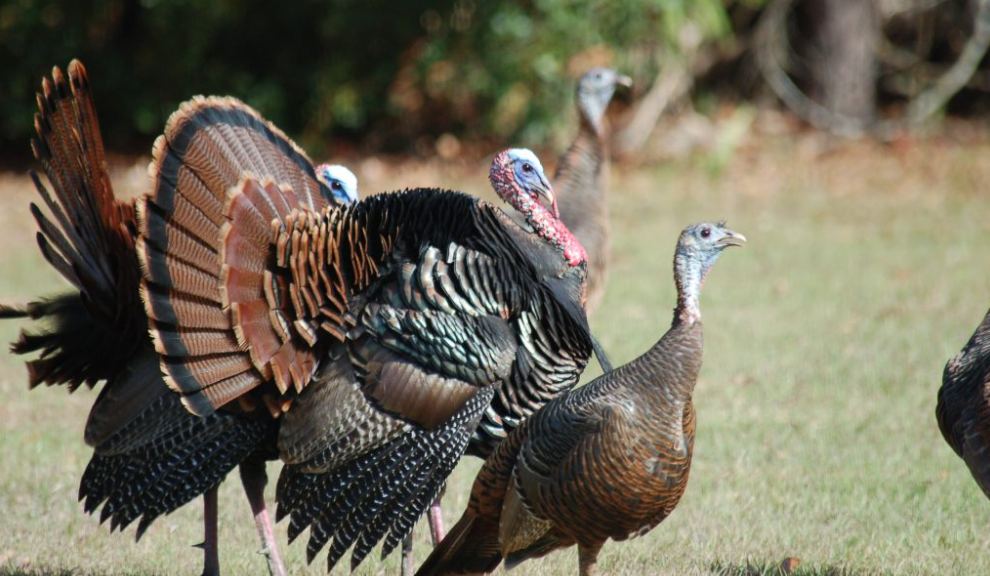
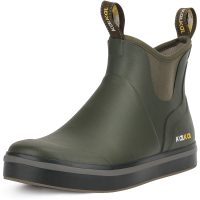




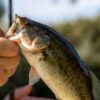


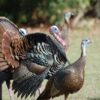



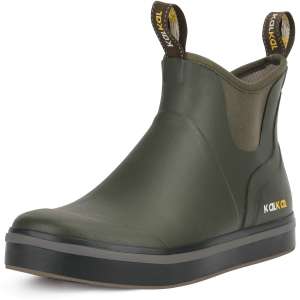




Leave a reply